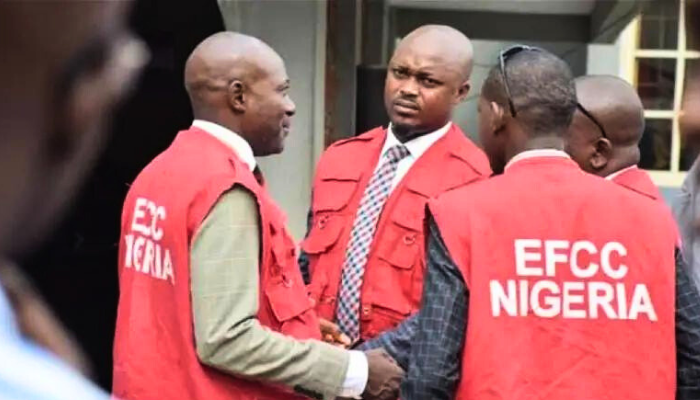Economic and Financial Crimes Commission (EFCC) has reignited high-profile corruption cases involving former governors and ministers, potentially shaking the political landscape and raising hopes for accountability.
The renewed investigations encompass alleged misappropriation of billions of naira and millions of dollars, ranging from arms procurement scandals to diversion of public funds. The estimated total sum under investigation exceeds N853.8bn, highlighting the scale of the alleged graft.
Key figures under scrutiny include:
Former governors: Kayode Fayemi (Ekiti), Ayo Fayose (Ekiti), Bello Matawalle (Zamfara), Chimaroke Nnamani (Enugu), Sullivan Chime (Enugu), Abdullahi Adamu (Nasarawa), Rabiu Kwankwaso (Kano), Peter Odili (Rivers), Theodore Orji (Abia), Danjuma Goje (Gombe), Aliyu Wamako (Sokoto), Timipre Sylva (Bayelsa), Sule Lamido (Jigawa).
Former ministers: Olu Agunloye (power, mines and steel), Sadiya Umar-Farouk (humanitarian affairs).
Notable cases:
Matawalle: Investigated for alleged N70bn money laundering, with contractors reportedly making “startling revelations” about returning funds to him.
Fayemi: Probed for an alleged N4bn fraud as Minister of Solid Minerals Development.
Fayose: Under investigation for an alleged N6.9bn fraud during his governorship.
Nnamani: Accused of an alleged N5.3bn fraud.
Chime: Investigated for an alleged N450m campaign fraud linked to former oil minister Diezani Alison-Madueke.
Orji: Probed for alleged N551bn money laundering.
Diezani: Subject to multiple investigations into multi-billion naira and million-dollar money laundering allegations.
New EFCC chairman signals zero tolerance:
The fresh probes come under the leadership of EFCC Chairman Ola Olukoyede, who vowed to review all high-profile cases and prioritize tackling corruption regardless of suspects’ social or political status. This pledge aligns with President Bola Tinubu’s anti-corruption drive, potentially marking a shift in tackling entrenched graft.
Challenges and uncertainties:
The sheer number and complexity of cases present logistical and legal hurdles.
Some suspects possess legal injunctions or hold current political positions, potentially complicating investigations.
Past anti-corruption efforts have yielded mixed results, raising concerns about potential political interference or stalling tactics.
The renewed investigations signal a potentially pivotal moment in Nigeria’s fight against corruption. The success of these probes will hinge on sustained political will, thorough investigations, and robust judicial processes. If done right, this could send a powerful message of accountability and deter future abuses of public funds.


